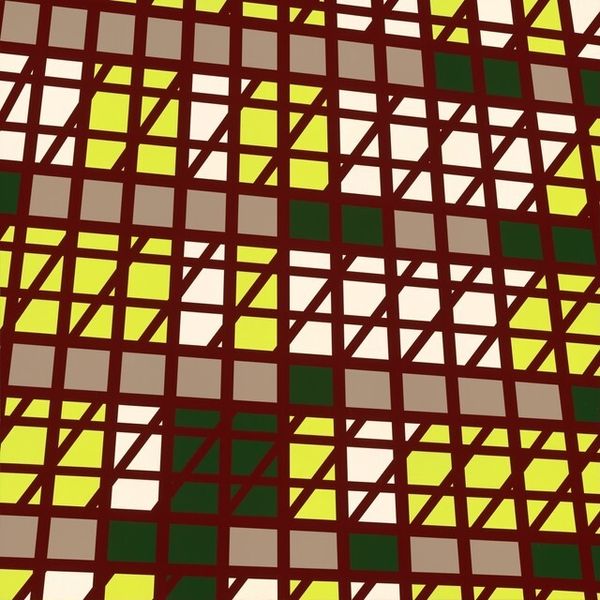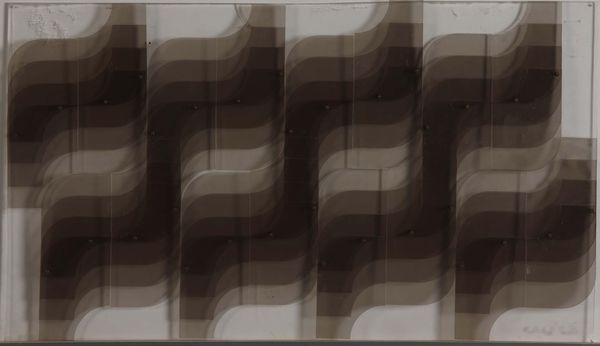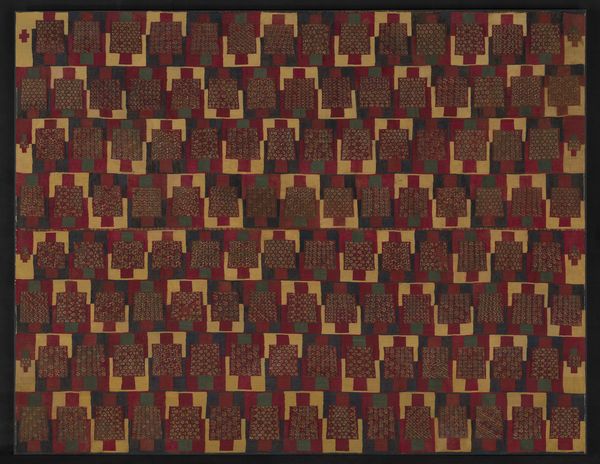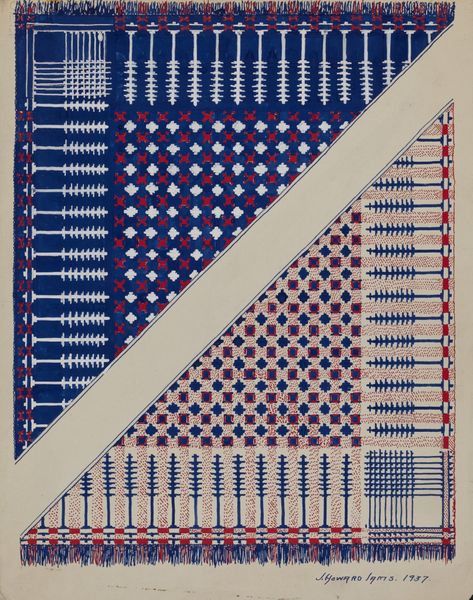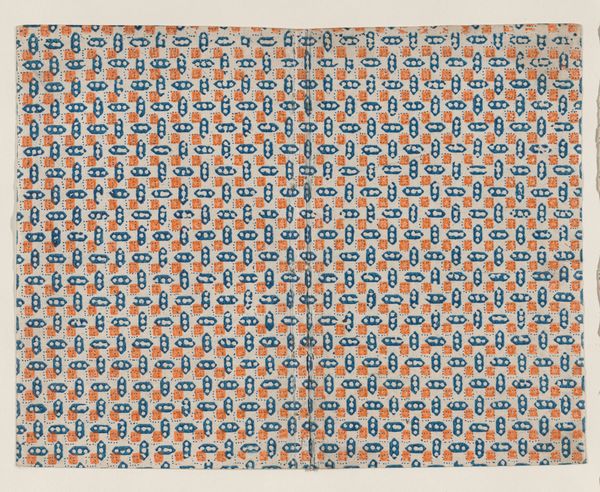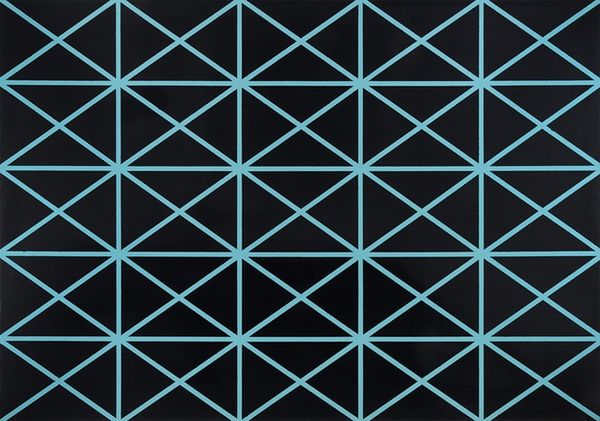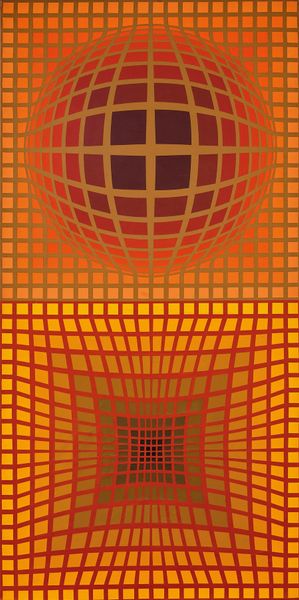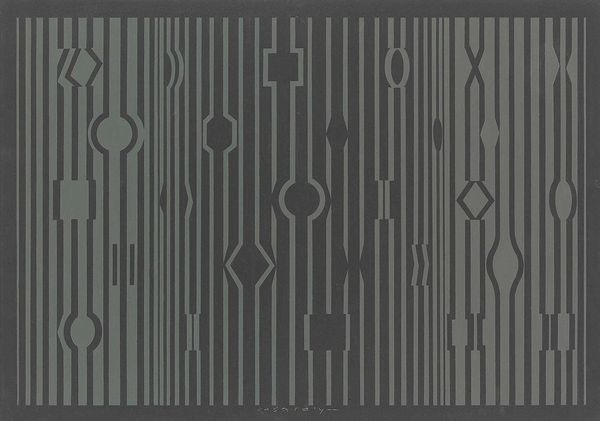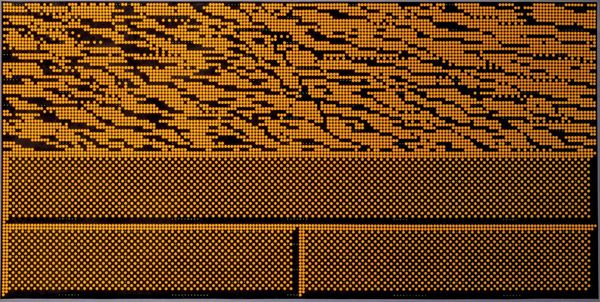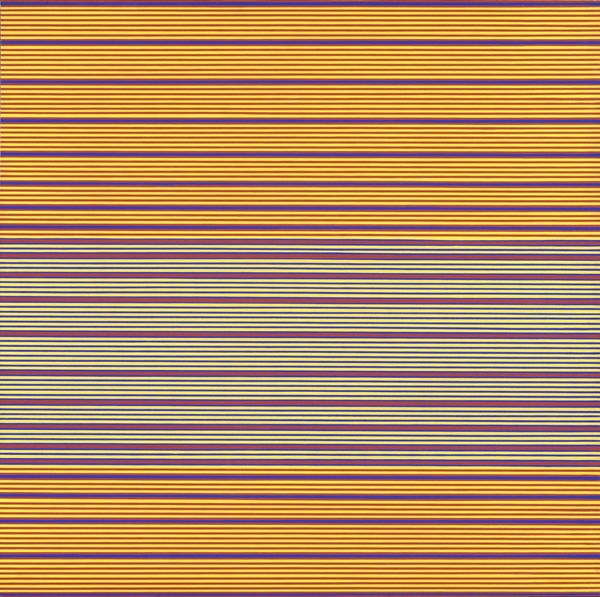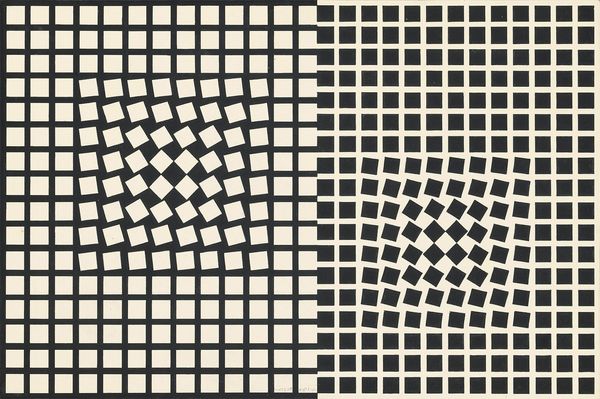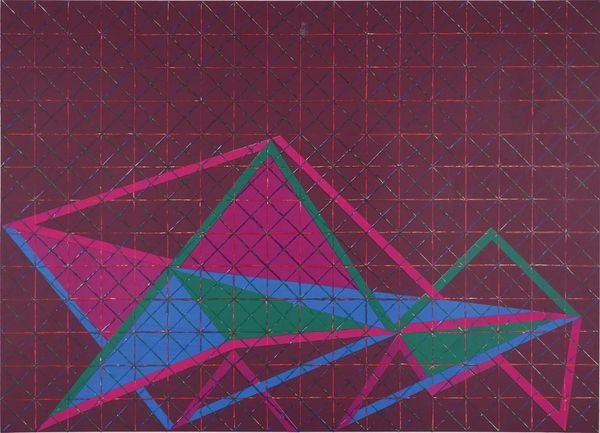
acrylic-paint
#
random pattern
#
op-art
#
pattern
#
acrylic-paint
#
abstract
#
geometric pattern
#
abstract pattern
#
minimal pattern
#
organic pattern
#
geometric
#
repetition of pattern
#
vertical pattern
#
abstraction
#
pattern repetition
#
layered pattern
Copyright: Modern Artists: Artvee
Victor Vasarely created 'Tega-Or' using geometric forms and a muted palette. The image plays with depth and perception, a hallmark of Op Art, pushing the boundaries of what painting could be. Born in Hungary and working primarily in France, Vasarely aimed to democratize art. Frustrated by art’s confinement to galleries, he sought to integrate it into everyday life through accessible and reproducible designs. This ethos was part of a broader mid-century social impulse to make high art accessible. His use of abstraction also challenges traditional representational modes, reflecting the post-war period's questioning of established norms. To understand Vasarely, we can look into the history of design movements like the Bauhaus, and explore exhibition catalogues and artist manifestos. Vasarely's art serves as a powerful reminder that artistic meaning is always shaped by its social and institutional context.
Comments
No comments
Be the first to comment and join the conversation on the ultimate creative platform.
